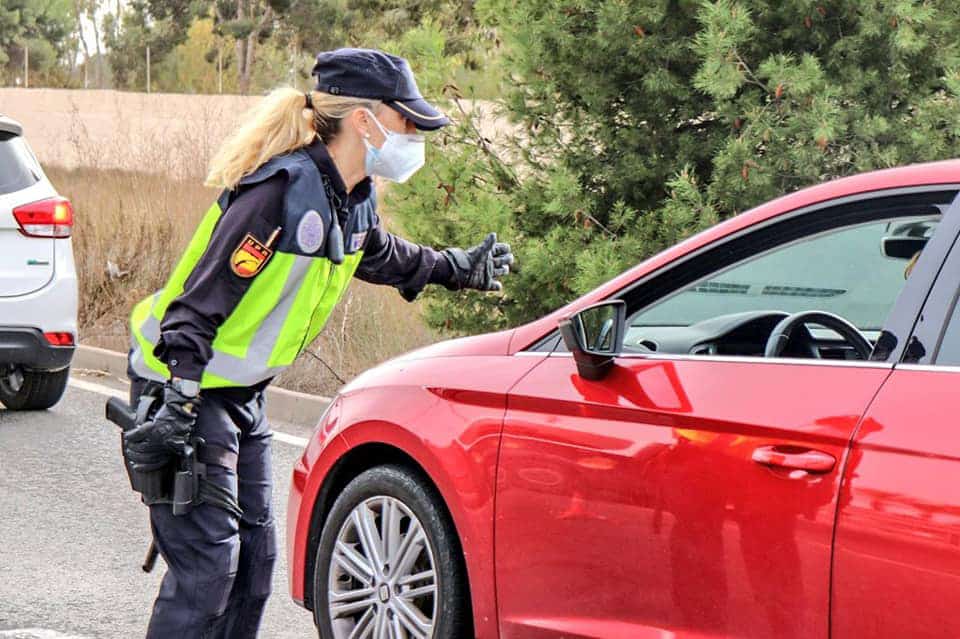Following the gradual easing of restrictions and looking ahead to the lifting of the border closure at the end of the state of alarm, scheduled for May 9, many experts in the Valencian Community say that they fear that the lifting of the closure will cause an increase in cases of covid arriving from other communities, which will lead to an increase in the incidence in our autonomy.
“We are currently in an oasis in terms of the situation regarding the pandemic, but we are also very close to autonomies with a very high rate of infections, which can have negative consequences for us,” warns Felix Gutiérrez, professor at the Miguel Hernández University.
There are just over two weeks before the borders will reopen between autonomies and Rafael Ortí, President of the Spanish Society of Preventive Medicine, hopes that this time will be used to vaccinate as many people as possible. He says that “with the influx of people from other communities and with commerce and hotels staying open until ten at night, we run the risk of entering a fourth wave that up to now the Community has avoided.
The increase in the capacity for cultural activities and celebrations worries specialists such as Juan Francisco Navarro, President of the Valencian Society of Preventive Medicine. “A cinema at 75% is practically at maximum capacity, just like a wedding with 150 people in an enclosed space. Both are very scary, especially knowing how the coronavirus is transmitted through the air.”.
The virus can spread from an infected person’s mouth or nose in small liquid particles when they cough, sneeze, speak, sing or breathe heavily. These liquid particles are different sizes, ranging from larger ‘respiratory droplets’ to smaller ‘aerosols’.
They are dangers that, in his opinion, will multiply when the perimeter closure is lifted “and more cases of imported coronavirus undoubtedly arrive in the Community.”
However, one thing on which all the experts do agree is that the increase in activity at night, with the extension until 10 pm of trading hours and hospitality, does not imply a greater risk.
“Taking into account the good figures we have in the Valencian Community, it does not seem like a risk to me, but we must still maintain control and follow-up on any cases that do arise,” explains epidemiologist José María López Lozano.
The specialist in Public Health and professor at the University of Alicante, José Tuells, says “it is also logical that as more people are vaccinated, the restrictions will be relaxed.” In addition, he adds, “people should still avoid getting together at night in houses and in other more risky enclosed spaces.”
The fact that almost 20% of the population is now protected with at least one dose of the vaccine will also allow the opportunity to gradually relax restrictions.
“Things are very different from the situation that we had just after Christmas, not only because of the immunity that vaccines are beginning to provide, but also because of the people who have already had the disease, diagnosed or not, a number that is likely to be rather more than the numbers of those vaccinated”, says Félix Gutiérrez.
The good weather also gives us reason to hope that there will not be a very pronounced upturn in cases. “From now on, more of our time will be spent outside, thanks to the good weather, which, together with the experience of last summer, provides us with rather more optimism”, adds the UMH professor.
For the most part it is the elderly population that has benefited the most from vaccination, which will be a relief for hospitals in the face of any rebound in the number of cases. “We have vaccinated a significant proportion of those over 70, who are the group at greatest risk if they contract the disease and next month will be key to completing that phase of the vaccination program,” says Rafael Ortí.
The president of the Spanish Society of Preventive Medicine believes that if the pharmaceutical companies maintain their supplies and the vaccination rate remains stable, “in summer we can forget about wearing masks.”





